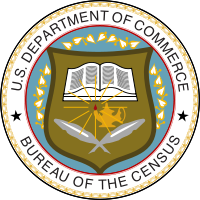 The U.S. Census Bureau has begun publishing a Household Pulse Survey every two weeks to gauge how Americans are coping with the disruptions caused by the COVID-19 pandemic. The survey asks questions on employment, health, education, and other issues.
The U.S. Census Bureau has begun publishing a Household Pulse Survey every two weeks to gauge how Americans are coping with the disruptions caused by the COVID-19 pandemic. The survey asks questions on employment, health, education, and other issues.
For students in K-12 education as well as at colleges and universities, most instruction has moved online and this will continue for the remainder of the academic year. But as many communities have found, providing effective online instruction is easier said than done. Most K-12 educators – and many in higher education – are unfamiliar with distance education technology and systems.
Adding to the problem is that many households do not have the required technology available to access the online instruction provided by school systems. This is further complicated for families with two or more children in school. Often even if these households have the required technology, they may not have the capability to fully educate more than one child.
The Census Bureau’s latest survey found that there were more than 9.6 million African American households with children in K-12 public and private schools throughout the United States. Of these, only 61.6 percent said they had the technology to allow children to do their online schoolwork at all times. For White households, nearly 73 percent had total access to the online education offered for their children.
Almost 29 percent of Black households said that the technology in their homes was “usually” or “sometimes” available for their children to use for online education. But there were 858,173 Black households that reported that they “rarely” or “never” had a device available for their children to use for online education. This was 9 percent of all Black households with children in public or private K-12 schools.
Only 4.3 percent of White households rarely or never had devices for children to use for online education. This is half the rate for Black households.











The digital divide negatively affects Blacks in proprietary nursing education programs as well. Many of the students attending these schools do not have access to computers and/or internet at home. Others have school-age children at home – all competing for computer time and parental attention. Since the pandemic began and clinical sites closed, the use of virtual clinical and simulation programs has increased dramatically. While these programs can provide excellent experiences for nursing students, most require broadband or streaming services, and lots of it! Students may resort to using their phones as hot spots and quickly run out of access. The digital divide is real!